Emiliano Sala: Search for answers over fatal crash continues
Another chapter in the search for answers over the deaths of footballer Emiliano Sala and his pilot has closed with the conviction of the man who arranged the fatal flight.
But the wait for answers is far from over.
The conviction is the latest piece of a complex jigsaw triggered by the tragedy.
Pilot David Ibbotson's body has never been found, and the inquest into Sala's death will be held next year.


Sala, 28, and Mr Ibbotson, 59, were killed when the plane plunged into the English Channel in January 2019.
Plane operator David Henderson hired Mr Ibbotson to fly Sala from Nantes to Cardiff, but he had no commercial pilot's licence and no qualification to fly at night.
He was found guilty of endangering the safety of an aircraft and sentenced to 18 months in prison.
Henderson's trial focused on the arrangements for the flight and its immediate aftermath, so told only part of the story.
The findings of air accident investigators, in March 2020, revealed a catalogue of errors that led to the crash.
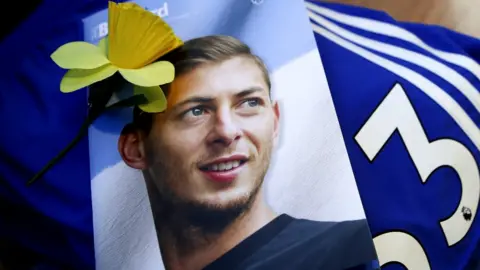 Getty Images
Getty ImagesWhat did we learn from the trial?
Mr Ibbotson had no commercial pilot's licence and no qualification to fly at night. The plane was not allowed to be flown commercially outside the US, where it was registered.
While not disputing those facts, Henderson's defence claimed that they did not constitute him acting in a reckless or negligent way - something the jury rejected in finding him guilty.
The jury heard Henderson predicted an inquiry after learning the plane had gone down while carrying Sala - calling it a "bloody disaster" in a text to another pilot who had raised concerns about Mr Ibbotson's flying ability.
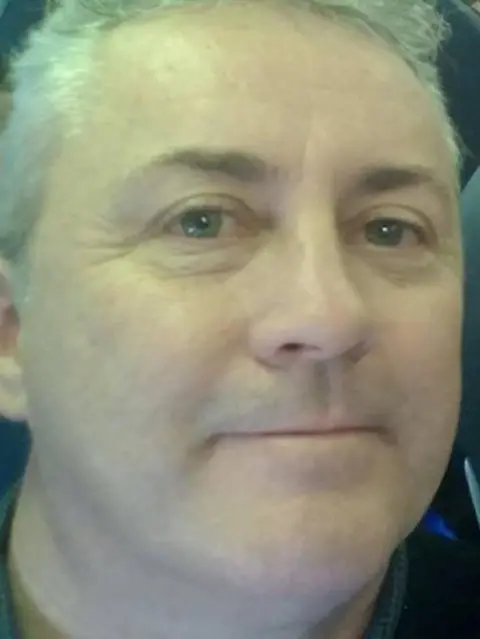 Dave Ibbotson
Dave Ibbotson
He told another pilot, who had flown an earlier flight linked to Sala's transfer, to "keep very quiet" because the crash "opens up a whole can of worms".
Although Henderson exchanged texts and other messages with associates in the hours after the crash, one person he failed to contact that evening, the following morning or indeed for several days thereafter was Mr Ibbotson's wife Nora.
In court Henderson said it would not be "normal" for him to keep next of kin records for his pilots - or any records, in fact.
Henderson did not keep track of his pilots' competencies in any formalised way, and he didn't know Mr Ibbotson's rating to fly the Malibu had expired two months previously.
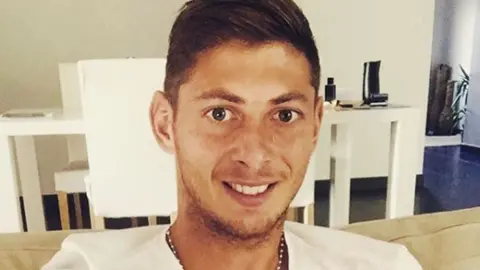 Emiliano Sala/Instagram
Emiliano Sala/InstagramThe Civil Aviation Authority (CAA) used text messages and email records to build a case against him.
Henderson, a 67-year-old father and grandfather, had already pleaded guilty to operating an aircraft commercially without permission.
This charge carries a potential prison sentence of up to two years, while endangering an aircraft carries a potential five-year term.
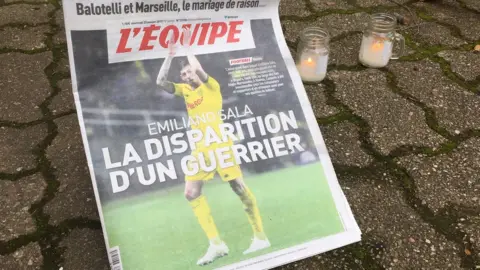
What's next?
The inquest into how Sala died will start on 14 February at Bournemouth Coroner's Court, and could last eight weeks. It is likely to have a wider scope than the trial.
Because Mr Ibbotson has never been found, the inquest jury will not deliver a verdict about how he died.
But for Mr Ibbotson's family, the findings of the inquest process will inevitably give them some answers too.
Senior coroner Rachael Griffin said the jury will consider the flight arrangements, the operation, condition and maintenance of the aircraft, the pilot's qualifications, the flight itself and ensuing search and recovery of Sala's body.
It will also consider the design of the plane's exhaust system and carbon monoxide detectors.
High levels of carbon monoxide were found in Sala's blood four months after his body was recovered. A pathologist concluded there was enough to kill him, or at least be unconscious, by the time the plane crashed.
The origins of the leak are believed to be a faulty exhaust, through which the aircraft heating system was channelled.
The AAIB report found Mr Ibbotson was conscious and flying the plane, as it broke up mid-air and crashed.
 Getty Images
Getty ImagesOn the second anniversary of the crash in January 2021, Sala's family said: "An inquest is the only way to establish the full truth."
Civil action?
Last March, the Sala family launched a legal action, with civil proceedings lodged in the High Court in order to "protect [the family's] legal rights" pending the inquest outcome.
Thirteen potential defendants have been listed in the civil case, including Henderson, the plane's owner Fay Keely and the British agents behind the transfer, Willie and Mark McKay, as well as both Cardiff City FC and FC Nantes.
The civil proceedings were stayed until the conclusion of the inquest.
The case is now scheduled to take place at the Court of Arbitration for Sport in Lausanne, Switzerland. A hearing will take place in March 2022.
Who owned Sala?
The dispute between Cardiff City and FC Nantes over whether Cardiff should pay the £15m transfer fee for Sala remains unresolved.
Football's governing body Fifa ruled in 2019 that Cardiff City should pay the first £5.3m (6m euros) instalment of the transfer fee to Nantes, but Cardiff appealed this.
They claim they are not liable for any of the fee because Sala was not officially their player when he died and the deal is not legally binding.
The case is now with the Court of Arbitration for Sport in Lausanne, Switzerland. A hearing will take place in March 2022.
If it rules against the club, in addition to payments due, Cardiff could face a three-window transfer ban.
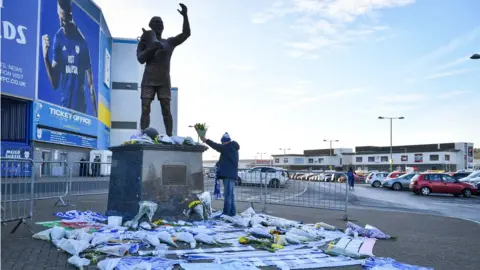 Ben Birchall/PA Wire
Ben Birchall/PA WireWhat about the people behind the transfer?
French police are investigating the transfer of Sala, after Cardiff City lawyers submitted a file in January 2020.
The club said there was "sufficient evidence of wrongdoing" in the transfer to warrant investigation in France.
Aside from Willie and Mark McKay, who held the mandate to find a Premier League club for Sala, a number of other football agents and intermediaries have been named as standing to benefit from the deal.
Chris Nott of Capital Law, who leads Cardiff City's legal team, said the public prosecutor for Nantes was concentrating on allegations from the club concerning FC Nantes' relationship with these agents.
FC Nantes said previously it was "absolutely stunned by Cardiff's umpteenth attempt to exploit this tragedy" while it had "acted in good faith".
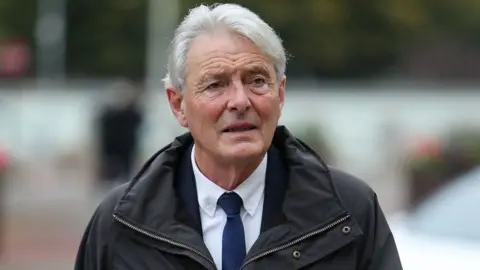 Getty Images
Getty ImagesThe future of unregulated flights
After the crash, the CAA ran a campaign warning of the dangers of unregulated flights. It asked the FA to forward a leaflet to all its licensed agents.
Sala would not have known Mr Ibbotson was not a commercial pilot, nor that accepting him as a paid-for passenger in an American-registered plane made the flight illegal.
